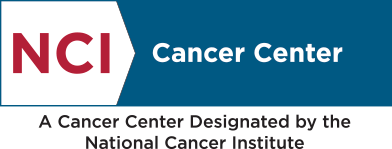Our first goal is cancer prevention. And one of the best ways to minimize your risk?
Find out if you are at risk for one of the many cancers that can be passed down in a family’s genetic line.
If you get tested and learn that you have a genetic predisposition, know that you aren’t alone. The Sylvester's Genetic Predisposition Syndrome (GPS) Clinic is built to be your home, where the team will assure you have access to and you receive best coordinated care with personalized health monitoring, risk reduction tactics, and survivorship strategies.
Learn to stay empowered in your health journey.
Who is the genetic predisposition clinic for?
- Survivors who have a cancer diagnosis and carry a genetic mutation (genetic predisposition syndrome)
- Previvors, those at increased risk for the disease due to a genetic mutation
- First-degree relatives of those with a genetic mutation, for testing and evaluation
If you do have a genetic predisposition and you are seen at the GPS clinic (in person or virtually), you will meet the genetic counselor, as well as a clinical provider and the concierge navigator. The team will make sure you understand the implications and risks associated with the particular genetic mutation, evaluate and discuss your clinical concerns, and review the recommendations for a personalized care plan.
Our goals are to:
- Provide emotional support and coping strategies
- Care for patients with predispositions using a multidisciplinary team of of providers, genetic counselors, nurse navigators, and health coaches — under one roof
- Identify high and average-risk family members through genetic testing
- Provide education and awareness around genetic mutations and ways to reduce your risk
- Reduce your risk of cancer
- Diagnose cancer at the earliest stage
- Assure the best survivorship outcomes for our patients
- Support research around hereditary cancers
The more we know, the better we can care for you.
Screening and treatment recommendations evolve with research. We evolve our treatment using research-based best practices to make sure you are getting the most advanced care, and if you develop cancer, we catch it as early as possible.
If you are diagnosed with cancer:
Screening and pre-treatment
After your initial diagnosis, the experienced care team will work on a personalized follow-up and survivorship treatment plan for you. Your care plan may vary based on:
- Family health history, including cancer diagnosis
- Personal goals and preferences
- Personal health history
- Specific genetic mutations
Generally, you will meet with your care team every 3-6 months and eventually some will be seen yearly.
During these appointments, you may receive imaging tests to monitor your health. Your provider may also review any new research or recommendations around your mutation, including updated national guidelines.
You will have a health coach who can advise you on lifestyle modifications to reduce your risk. You may also be referred to other specialists for prophylactic surgeries to reduce your risk, including:
- Gynecological oncologists
- Breast surgeons
We support you with a coordinated care plan that gives you access to experts — all under the Sylvester roof. And our care team makes navigating these appointments as easy as possible, with a dedicated nurse navigator.
We aim to minimize cancer risk and, if cancer occurs, to find it at its earliest stage, when the chance to cure it is the highest. Being monitored in a high-risk program at Sylvester allows the prompt switch to facilitate early treatment should cancer occur. That means a quick transfer of care from monitoring your predisposition to actively treating your cancer.
Your oncologist will provide you with appropriate treatment based on your specific cancer and the genetic predisposition information.
Once active treatment is complete, your oncologist will coordinate with the GPS Clinic to manage follow-up and monitoring for other cancers.
Other services we provide:
Reproductive services: Patients with genetic predispositions may choose to take measures so they don’t pass the genes to their future children, including through Reproductive and Sexual Health Services and other family planning.
Clinical trials: Before and after a cancer diagnosis, patients can be part of clinical trials that support the diagnosis and treatment of cancers with genetic predispositions. These trials often research how to stop cancer from developing.
Patient registry: Patients may choose to register to participate in future research that helps define risks associated with specific genetic mutations.
Education and Resources
- BRCA Strong
- Family Cancer Syndromes (American Cancer Society website
- Eileen Youtie Foundation
- FORCE - Facing Hereditary Cancer Empowered
- Hereditary Cancer Prevention and Early Detection - Cancer Moonshot Recommendation - NCI
- Sharsheret BRCA Genetics
